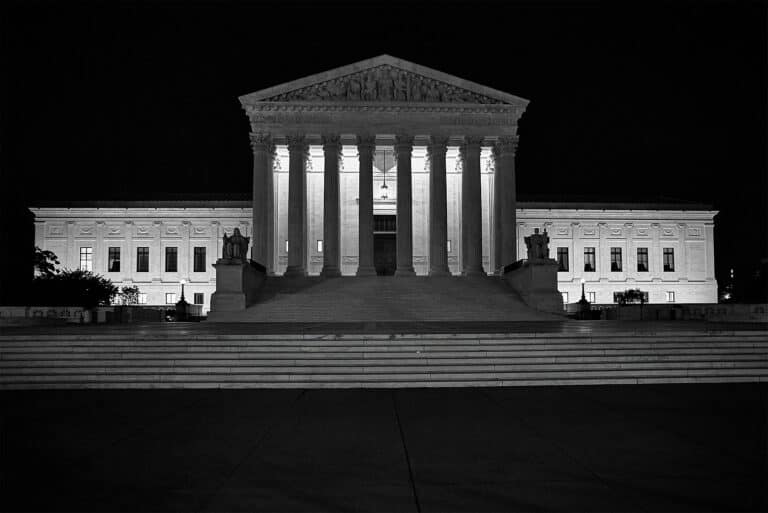
Michelle Berger is a student at Harvard Law School.
Section 7 of the National Labor Relations Act protects the right of employees “to engage in … concerted activities for the purpose of … mutual aid or protection.” Because the Act applies to union and non-union workplaces alike, by protecting concerted activities the Act protects the seeds of solidarity whenever workers sow them. This makes the Act’s protection for concerted activities a critical function of labor law.
In a decision published yesterday, Miller Plastic Products, the Board returned to its prior totality of circumstances test for determining whether activity is “concerted.”
Protected activity under the Act must be both “concerted” and for the purpose of “mutual aid or protection.” Employee activity is clearly concerted when two or more employees act together. But what of a situation where a single employee acts, such as where one employee voices dissatisfaction in the presence of other employees?
Prior Definitions of ‘Concertedness’
The Board stated decades ago in Meyers I that concerted activity is “engaged in with or on the authority of other employees, and not solely by and on behalf of the employee himself.” In Meyers II, the Board clarified that even an individual employee can act concertedly when they “seek to initiate or to induce or to prepare for group action, as well as … bring[] truly group complaints to the attention of management.” Meyers II acknowledged that activity involving “only a speaker and a listener” can be concerted activity, “for such an activity is an indispensable preliminary step to employee self-organization.” The Board also clarified that its Meyers I definition had not been “exhaustive,” and recognized that determining ‘concertedness’ would require “careful scrutiny of record evidence on a case-by-case basis.”
The Board discussed the Meyers standard in the 2011 case WorldMark by Wyndham. In WorldMark, an employee was disciplined after he questioned a new dress code requirement in the presence of co-workers. After quoting the Meyers cases, the Board observed that “[a]pplying [Meyer’s] principles,” it had “consistently found activity concerted when, in front of their coworkers, single employees protest changes to employment terms common to all employees.” Further, the Board reasoned “that an employee who protests publicly in a group meeting is engaged in initiating group action.” Then, the Board considered the totality of the circumstances, including the employee’s words, timing, and knowledge of his co-workers’ attire preferences. The Board found the activity concerted.
The next development in the law of ‘concertedness’ came in 2019, when the Board decided Alstate Maintenance, LLC. In Alstate, an employee commented on an arriving customer’s history of ungenerous tips in the presence of co-workers. The Alstate Board characterized the employee’s statement as a “gripe.” After summarizing the Meyers cases, the Board stated that neither the employee’s statement nor the circumstances surrounding it indicated that the employee “was seeking to initiate or induce group action,” and therefore his activity was not concerted.
The Alstate Board also took the opportunity to revisit WorldMark. Without crediting WorldMark’s totality-of-circumstances approach, the Alstate Board insisted that the WorldMark Board had “announced, as a rule of law, that ‘an employee who protests publicly in a group meeting is engaged in initiating group action’” (emphasis added by the Alstate Board). The Board next reasoned that Worldmark (thus construed) was in tension with the Meyers cases.
The Alstate Board proceeded to overrule WorldMark. In its place, the Board reiterated that an individual employee statement qualifies as concerted activity if “the totality of the circumstances … support[s] a reasonable inference than in making the statement, the employee was seeking to initiate, induce or prepare for group action.” Then, the Board listed five factors that would “tend to support drawing such an inference.” These factors “include that: (1) the statement was made in an employee meeting called by the employer to announce a decision affecting wages, hours, or some other term or condition of employment; (2) the decision affects multiple employees attending the meeting; (3) the employee who speaks up in response to the announcement did so to protest or complain about the decision, not merely (as in WorldMark) to ask questions about how the decision has been or will be implemented; (4) the speaker protested or complained about the decision’s effect on the work force generally or some portion of the work force, not solely about its effect on the speaker him- or herself; and (5) the meeting presented the first opportunity employees had to address the decision, so that the speaker had no opportunity to discuss it with other employees beforehand.”
Both Alstate and the case it overruled, WorldMark, claimed fidelity to the Meyers cases. And both standards purported to reflect the totality of the circumstances. Dissenting in Alstate, then-Member McFerran suggested that the majority’s “unduly cramped” factors risked leaving genuinely concerted activity unprotected.
Alstate‘s ‘Concertedness’ Factors Now Overruled
In Miller Plastic, an employee –– who had previously spoken with co-workers about COVID-19 safety concerns –– objected to the company’s plan to remain open in the early weeks of the pandemic. The entire Board agreed that the facts of Miller Plastic supported a finding of concertedness even under the Alstate standard. Nonetheless, with now-Chairman McFerran a member of the majority, the Board in Miller Plastic revisited Alstate.
The Miller Plastic Board observed that, under the totality of the circumstances approach that was used for decades, list of factors constrained the ‘concertedness’ inquiry. The Board deemed the pre-Alstate approach more consistent with the Meyers cases and better suited to promote the policies of the Act. Accordingly, the Board overruled Alstate’s five-factor checklist and reaffirmed “the Board’s longstanding totality-of-the-circumstances test” as the operative test for ‘concertedness.’
Miller Plastic Sidesteps Alstate’s ‘Mutual Aid or Protection’ Holding
In addition to “concerted,” protected activity must also be “for the purpose of … mutual aid or protection.” Labor law has long recognized that activity can be “for the purpose of … mutual aid or protection” even where it pursues goals outside of subjects of bargaining. Per the Supreme Court’s 1978 decision in Eastex, the connection between the activity and workplace interests cannot be too highly “attenuated.”
The Trump Board opined on the meaning of the mutual aid and protection clause in Alstate. There, after deciding that the employee’s statement about tipping was not concerted, the Board also decided that it was not for the purpose of mutual aid or protection. The Board reasoned that tipping, at least given these facts, “is a matter between the [customer] and the [employee], from which the [] employer is essentially detached.” Then-Member McFerran critiqued this reasoning in dissent, observing that the amount of tipped compensation employees receive bears directly on the terms and conditions of their employment, and is thus well within the meaning of the mutual aid or protection clause.
The Miller Plastic Board sidestepped this issue entirely. This is not altogether surprising: an employee who expresses concerns about disease contagion at work clearly acts for the purpose of workers’ mutual aid or protection. Nonetheless –– at a time when the federal tipped minimum wage remains $2.13/hr –– it is striking that the Board did not explicitly disavow Alstate’s assertion that tipping is an issue from which an employer is “essentially detached.”









Daily News & Commentary
Start your day with our roundup of the latest labor developments. See all
July 4
The DOL scraps a Biden-era proposed rule to end subminimum wages for disabled workers; millions will lose access to Medicaid and SNAP due to new proof of work requirements; and states step up in the noncompete policy space.
July 3
California compromises with unions on housing; 11th Circuit rules against transgender teacher; Harvard removes hundreds from grad student union.
July 2
Block, Nanda, and Nayak argue that the NLRA is under attack, harming democracy; the EEOC files a motion to dismiss a lawsuit brought by former EEOC Commissioner Jocelyn Samuels; and SEIU Local 1000 strikes an agreement with the State of California to delay the state's return-to-office executive order for state workers.
July 1
In today’s news and commentary, the Department of Labor proposes to roll back minimum wage and overtime protections for home care workers, a federal judge dismissed a lawsuit by public defenders over a union’s Gaza statements, and Philadelphia’s largest municipal union is on strike for first time in nearly 40 years. On Monday, the U.S. […]
June 30
Antidiscrimination scholars question McDonnell Douglas, George Washington University Hospital bargained in bad faith, and NY regulators defend LPA dispensary law.
June 29
In today’s news and commentary, Trump v. CASA restricts nationwide injunctions, a preliminary injunction continues to stop DOL from shutting down Job Corps, and the minimum wage is set to rise in multiple cities and states. On Friday, the Supreme Court held in Trump v. CASA that universal injunctions “likely exceed the equitable authority that […]